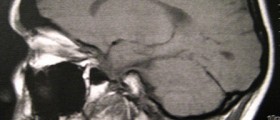
Basic Information about Galactosemia
Galactosemia is a kind of inherited disorder of the metabolic system that is characterized by a lack of enzyme that is supposed to break down a subtype of sugar called galactose. In order to develop galactosemia, a child has to inherit one malfunctioning gene from the mother and one malfunctioning gene from the father. In addition, even though the subtype of sugar lactose is capable of breaking down galactose, galactosemia is still a very serious condition. Further, when an individual eats food that contains lactose, several types of enzymes will break it down to galactose and glucose. Galactose needs to be further metabolized, but the enzymes responsible for its reduction are either scarce or nonexistent. As a result, the amount of galactose in the body is so high that it can have adverse effects on the female reproductive organs, as well as the brain, liver, and the eyes. In addition, many individuals cofuse galactosemia with lactose intolerance, but they are separate disorders. Lactose intolerance is associated with the deficieny of an enzyme called lactase and if a person suffering from this disorder eats a dairy product the result will be cramps. However, if a galactosemia patient ingests a dairy product the consequences include long term damage to the internal organs. Unless diagnosed and treated in a timely fashion, galactosemia results in death in about 2/3 of new born babies. Types of Galactosemia
Clinical research studies have identified three distinct types of galactosemia, including the classic, the galactokinase deficiency and galactose episerase deficiency. The classic type of galactosemia, or Type I, is the most prevalent, while at the same time causing the most damage to the affected individual. The galactokinase deficiency, or Type II, is a milder form resulting in cataracts and less long term difficulties. The Type III, galactose episerase deficiency, ranges in severity while producing problems such as kidney and liver diseases and physical and cognitive disability in children. Other symptoms associated with galactosemia include speech problems, low bone density, as well as slow weight gain.Diagnosis of Galactosemia
In the US, new born babies are routinely checked for galactosemia using a few kinds of tests, especially if there is a family history of the disorder. On the other hand, if galactosemia is not detected right away the symptoms that appear can be ambiguous and comorbid with a number of other disorders. Some of the most common signs of galactosemia include jaundice, loose bowel, vomiting and disinterest in physical activities, and it can take a while for medical care professionals to realize what the underlying problem is. Further, if there is a history of galactosemia in the family, special kinds of tests can be performed during pregnancy to see whether the fetus inherited the two defective copies of genes and will develop the disorder. Once the child is born, a blood and a urine test are administered to inspect for the presence of all necessary enzymes that metabolize sugar. If one of the enzymes is missing, the elevated quantity of galactose will be manifested in the bodily fluids.
Causes of Galactosemia
The underlying reason behind the commencement of processes that constitute galactosemia are not all that clear, but it is a well established certainty that the disorder is genetically passed on via two copies of recessive genes, while the parents rarely have any symptoms, or are even aware of the fact that they are carriers of such genes. Individuals suffering from galactosemia are unable to metabolize galactose, which is a part of lactose. As lactose is one of the basic substances of milk, if an infant with galactosemia is given any kind of milk, or later on a dairy product, it can cause substantial damage to the body.
Treatment Options
There are no medical kinds of treatment for galactosemia. Individuals who suffer from this disorder are left with restricting their diet and absolutely eliminating lactose and galactose from the daily food intake. Primarily, all dairy products should be avoided and infants fed with soy based formula. Other sources of protein are allowed and so are most fruits and vegetables, even those that do contain galactose. Galactose found in fruits and veggies is not metabolized anyway and therefore does not result in any adverse consequences. In some instances, a medical professional will recommend dietary supplements, but those should not be taken without permission. Prevention
As is the case with any other genetic disorder, individuals should be aware of the family medical history and if wanting to have children go through various kinds of tests to identify the possible disorders that are highly likely to be inherited by a child and take proper action. It should be noted again that the screening of newborns will detect galactosemia so the parents will have to stop giving the baby milk right away to prevent any permanent damage in the body.

















Your thoughts on this
Loading...